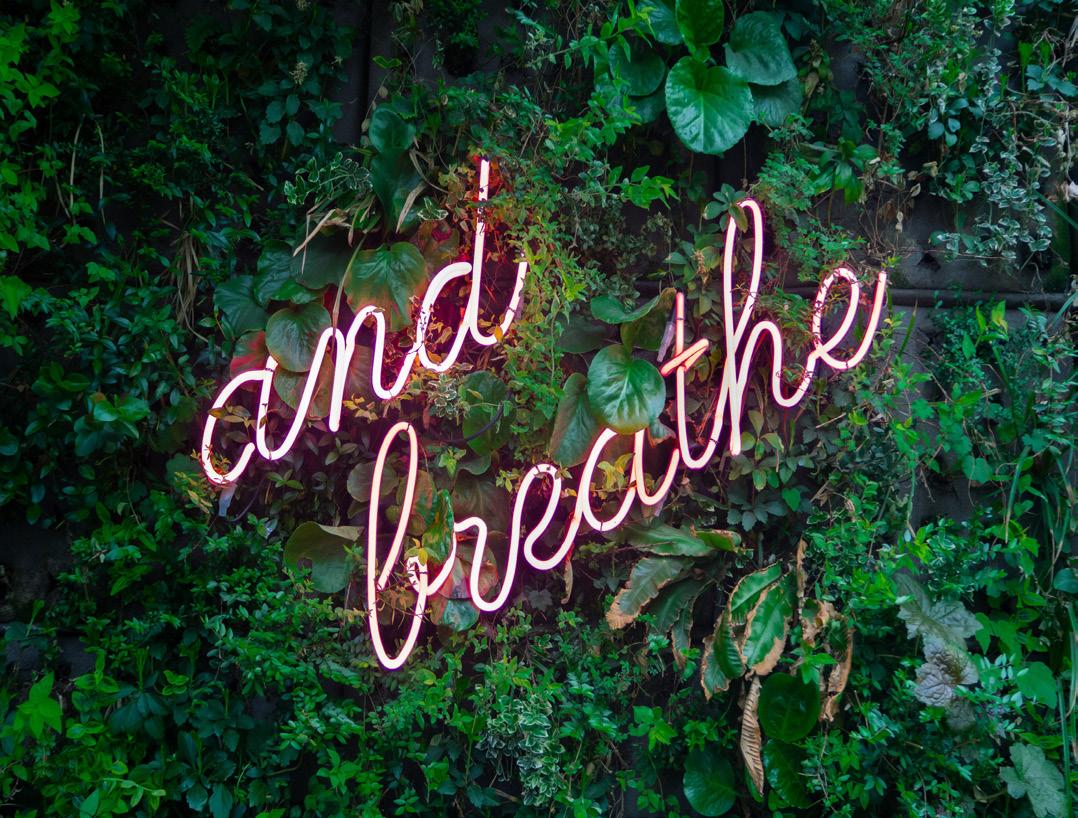
4 minute read
The Other Unseen Threat
Don’t breathe. Wear a mask. Use gloves. Don’t use gloves. Don’t go outside. Go outside and exercise. Don’t touch anything. Stock up on everything. Stay connected. Don’t go anywhere. It is all so damn overwhelming. The challenge we are collectively facing to navigate the global pandemic has taken its unique toll on all of us. From hearing about a college classmate passing away to seeing a colleagues lose their jobs, this moment in history will be one of the most distinct markers of our lifetime. Please do your best not to minimize that for yourself.
There have been thousands of articles published describing how to effectively cope with the stress of isolation or the uncertainty about how or when our lives will return to some normalcy. The one glaring omission I have consistently observed is that few have stated that it is okay to be worried. It is okay to be angry. It is okay to sad or happy. It is okay to not be okay right now. While incredibly well meaning, the advice given to simply stay busy or make Zoom calls is only part of how to care for ourselves. When you recognize the fear that is present, do your best to let it guide your action. What is the emotion telling you? Maybe you are a small business owner who is watching everything they have worked so hard for slowly fade. Maybe you are genuinely worried because your child has an illness that makes them more vulnerable. Maybe you are more susceptible than most to the consequences of isolation. Or maybe suddenly becoming a homeschool teacher seizes your last emotional reserves. It is easy for many to say it will be okay. Not everyone has that ability, and that is where we must validate the fear and worry.
I have written in previous articles about the power of accepting uncertainty, and that remains a fundamental component of peace. The dialectically true other side is that we must also allow for the worry or anxiety that accompanies the unknown we are all living in. We must give ourselves enough space to express that worry out loud and hear that others are worried too, just as much as we tap into our resiliency and hope that we will survive this mess. Anxiety yearns for a sense of control, and we must try to allow for the experience of having little control right now. Don’t solely sit it for too long, and don’t ignore it either. No one has ever grown from emotions they have ignored.
One other critical element of self-care during this time is exercise; in any form you are capable. The primary importance of this is that is will help boost your immune system. When we experience high levels of stress and anxiety, our brain floods our body with the stress hormones Cortisol and Adrenaline. Our subconscious survival instinct uses these chemicals to help motivate our actions to remain safe. However, when these hormones remain at elevated levels in our system the primary side effect is, you guessed, a suppressed immune system. When we exercise, most importantly during times of high stress, our brain flushes these stress hormones from our system and introduces endorphins and dopamine, which help to stabilize and elevate our mood, and improve our immune systems. If we cannot avoid the natural worry related to the unknown, we can be proactive with and mindful of our bodies’ needs. If you are feeling more overwhelmed with the immense amount of change we are all attempting to adjust to, it is okay to ask for help. There is no shame is feeling that this is all too much. Most therapists in your area have adopted tele-health platforms that allow counseling sessions to continue seamlessly. There are also services such as Talk Space and Better Help that allow you to text or talk with a therapist in your area if you need some support or guidance outside of a therapy session.

One other tip I can provide is practicing regular breathing exercises. I know, giving advice to “just breathe” is not meant to be condescending. It really does work! A practice of Box or Four-Square breathing can be unbelievably effective at calming the body during periods of high anxiety or panic. And, research has shown that regular meditative breathing helping to increase the gray matter of our brain, which is essential for mood and thought regulation. The basic steps are to breathe in for 4 counts, hold the breath in for 4 counts, breathe out for 4 counts and then hold the lungs empty for 4 counts. Try 5 cycles of this and see how you feel. Try to do more if you can or lower the count to 2 or 3 if you having any breathing struggles. It can help when your mind is ruminating and you can’t sleep, or maybe when you are feeling anxious at the grocery store or bank.
I know everyone is doing the very best they can. And it is okay to not be okay right now. Staying in tune with our full emotional experience is the nourishment that will help each of grow through the pandemic. We are and will get through this together.

Anthony Gonzalez, LCSW, QS ALERE Emotional Health LLC anthony@alereemotionalhealth.com






